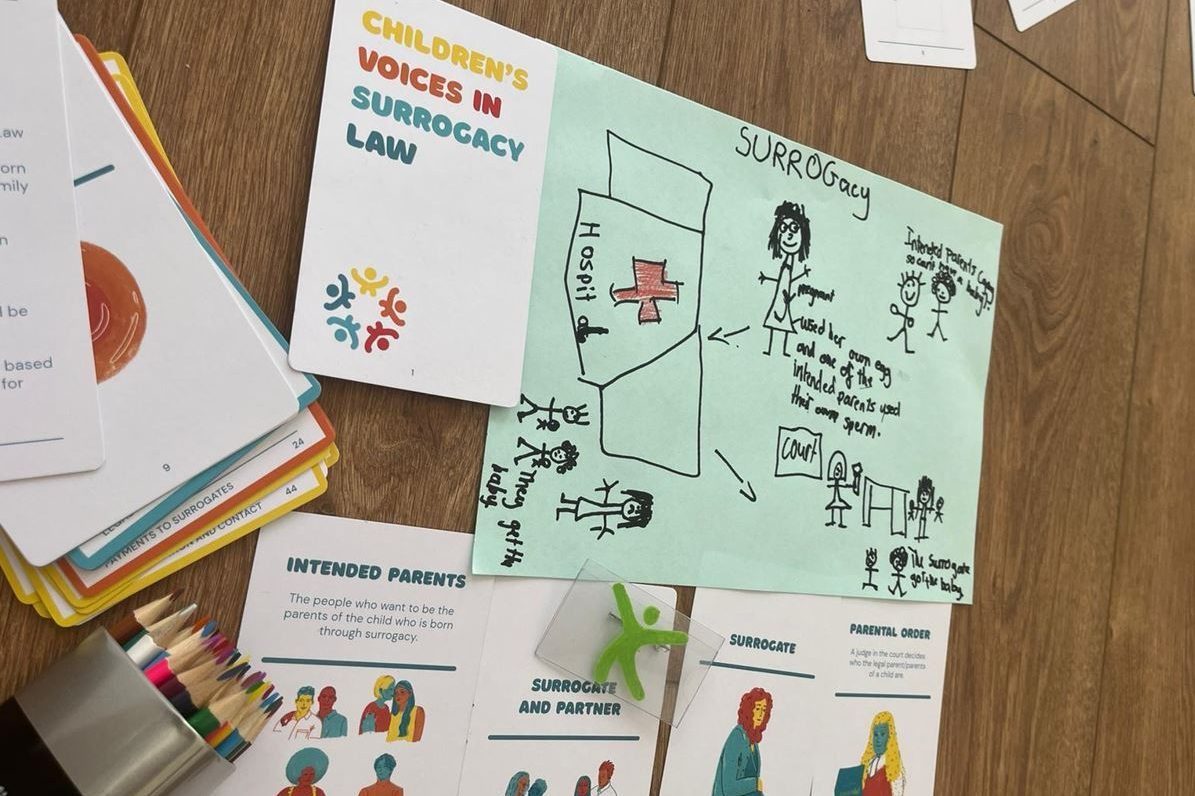Children with experience of surrogacy are in favour of legal reforms, according to a new study involving Dr Kirsty Horsey from Kent Law School.
The study, which also involves researchers from the universities of Leicester and Exeter, marks the first time that the views of children will be included in a review of surrogacy laws.
Using a combination of age-appropriate methods, including a unique set of playing cards, the team have obtained children’s views on topics that included how the legal parents of a child born through surrogacy should be decided, whether children should know details of their surrogate, and compensation for surrogates.
The findings are reported in Phase One of the project Children’s Voices in Surrogacy Law, and they have been reported to the Law Commission of England and Wales and the Scottish Law Commission.
Surrogacy is an arrangement where a woman becomes pregnant and gives birth to a child or children which she intends will be cared for by other people. Though surrogacy is currently legal in the UK, the legal framework is criticised as not fit for purpose for many reasons, including surrogates’ recognition as legal mothers, the need for Parental Orders (a bespoke legal mechanism transferring legal parenthood to the intended parents), and the opaque situation regarding financial matters.
Current UK law recognises surrogates and their spouses/civil partners (if applicable) as the legal parents of children born through surrogacy. Parenthood is transferred to those who wish to become the parents (intended parents) through a ‘Parental Order’ by the courts. Most participants thought that intended parents should automatically be recognised as the parents following surrogacy, without the need for a Parental Order.
Other findings include how the children of surrogates were concerned by the idea of payment for surrogacy, as this would potentially undermine their mother’s altruistic motivations. Most children born through surrogacy did not object to the idea of payment for surrogacy, though some acknowledged a potential negative impact on surrogate-born children. Most participants were in favour of openness, saying that children should know their surrogate, whether her own egg was used or not, and whether a donor egg or sperm was used. They were also very much in favour of continued contact between the families after the birth of the child, drawing on their own positive experiences. There was also general agreement that very little was done in schools about surrogacy.
Dr Kirsty Horsey said: ‘It has been so interesting to hear the views of children and young people with experience of surrogacy. Though there have been previous studies on how children born from surrogacy or whose mother was a surrogate develop socially and psychologically, their actual voices and opinions have been omitted from the debates on surrogacy, what the law says, and on law reform, until this point. It’s important that those voices are heard.’
The Report from Phase One is available here. Phase Two of the project is currently underway with children and young people who do not have experience of surrogacy.
The project was funded by the Institute of Medical Ethics and UKRI participatory funding. More information about the project is available here: https://childrensvoices.le.ac.uk/

